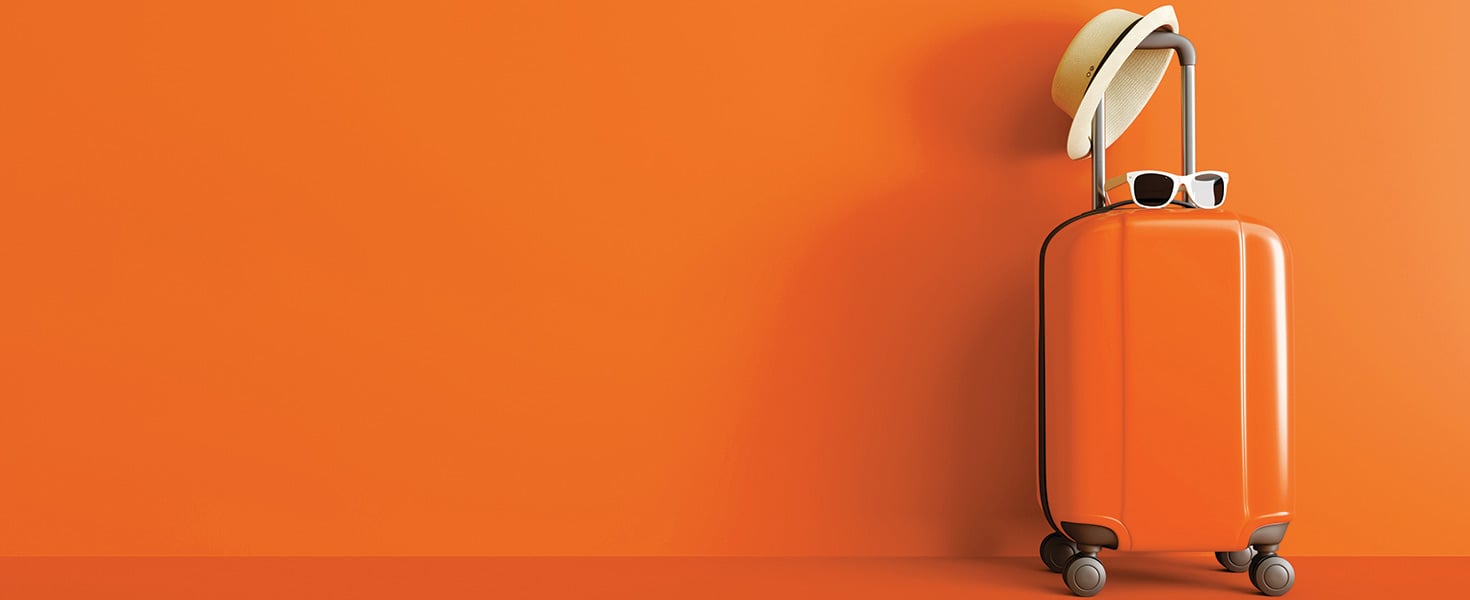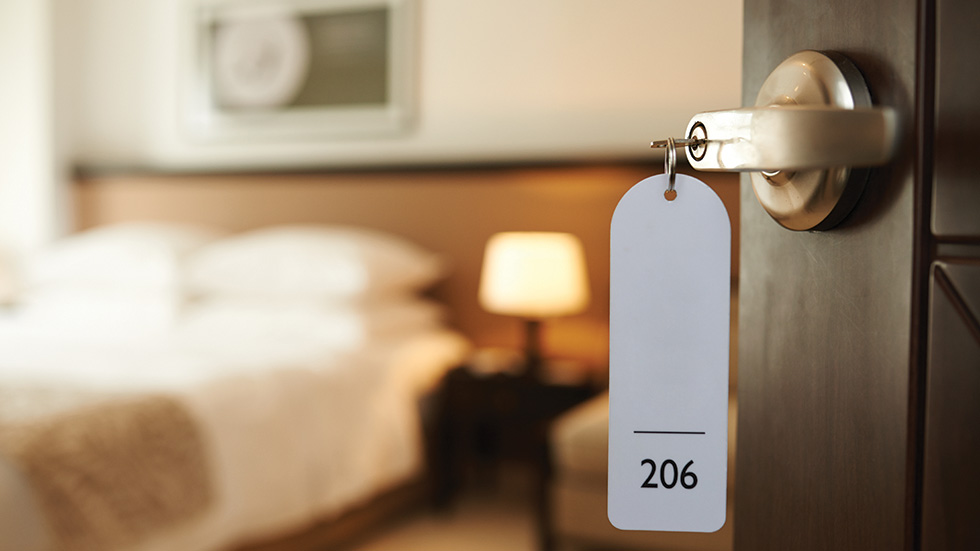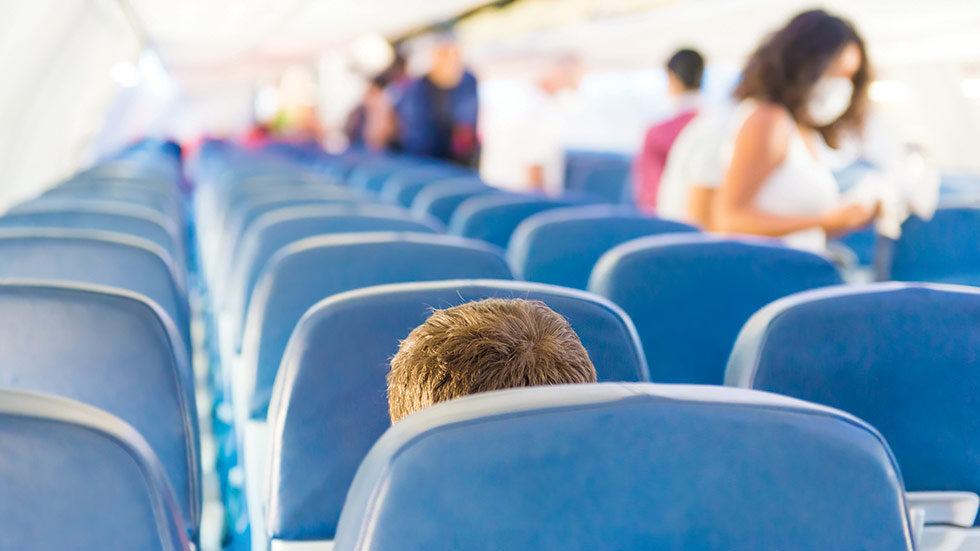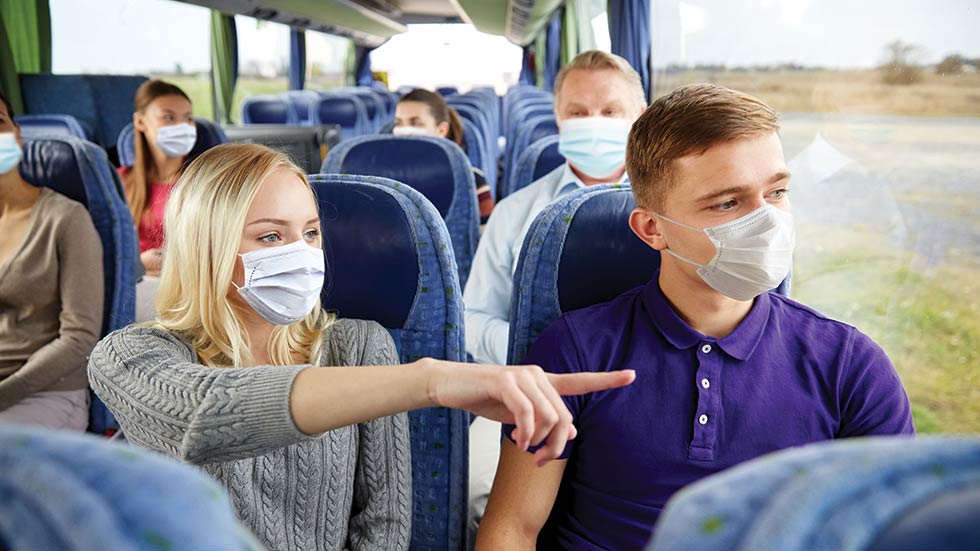Navigating New Realities of Travel
When you’re ready to travel again, what might the travel scene look like? We share a look at the ever-changing landscape


If anything is certain about the tourism industry in these uncertain times, it’s that travel has taken on a fluid new reality. Months of COVID-19 restrictions have led to a pent-up desire for travel—one that tourism leaders worldwide are diligently working to fulfill by rethinking safety, sanitization and the overall guest experience. While the so-called “new normal” of travel can vary by country, state and city, some best practices and protocols are becoming ubiquitous across the travel landscape. What might that landscape look like when you’re ready to embark on your next adventure? Here’s a glimpse of what you might expect.

WHEN RENTING A CAR
Road trips have become a favored vacation mode in recent months, with travelers looking to get away to car-accessible destinations that offer the freedom of the open road while providing the peace of mind of relative proximity to home. In fact, this past summer, Americans took an estimated 700 million road trips, according to AAA research. For those who prefer to rent their road-trip ride, rental car companies have retooled their operations with cleanliness and safety top of mind.
Hertz, for example, has introduced Hertz Gold Standard Clean, an enhanced 15-point sanitization process that includes cleaning all contact surfaces (such as the steering wheel, consoles, door handles, etcetera) with an Environmental Protection Agency (EPA)-approved disinfectant. At the conclusion of the process, each vehicle is sealed, ready for the next rental.
“Sealing each vehicle is a first-of-its-kind practice in the car rental industry and one we believe will give customers added peace of mind knowing they are the only person to enter the vehicle after it’s been thoroughly cleaned and sanitized,” says Laura Smith, executive vice president of Hertz’s Global Marketing and Customer Experience.
For customers who prefer to limit contact, Hertz offers vehicle delivery and pickup at nearly 3,000 US neighborhood locations. At many airports, Hertz Gold Plus Rewards loyalty program members can skip the rental counter and go straight to their car. And where Hertz Fast Lane powered by CLEAR is available, they can exit the lot with a facial scan and later drop off their vehicle with Hertz’s eReceipt and Express Return service.
“While it may take some time for people to travel like they did before, we recognize that many people may feel more comfortable traveling by car at this time,” says Smith, “and we know that we can provide them with a safe, fast and easy rental experience.”

WHEN STAYING AT A HOTEL
Hotels have been among the hardest-hit segments of the tourism industry throughout the pandemic—with tens of billions of dollars in room revenue lost and millions of jobs cut, according to the American Hotel & Lodging Association (AHLA).
Rigorous standards for cleanliness have always been a hallmark of a quality hotel. And now, properties large and small, from worldwide brands to local boutiques, have taken cleanliness to a new level with upgraded sanitization protocols and contactfree technology.
Earlier this year, the AHLA rolled out Safe Stay industry-wide guidelines, created by an advisory council of two dozen leading US hotel companies in accordance with the Centers for Disease Control and Prevention (CDC) recommendations. The guidelines address intensified cleaning standards in rooms and throughout hotel touchpoints. Guests can expect the use of cleaning products with a higher concentration of bacteria-killing ingredients; sanitization of communal areas such as guest elevators, reception desks and vending/ice machine areas; and signage with hygiene reminders.
All staff receive COVID-19 training, and more comprehensive training is provided for staff members who have frequent contact with guests. That means housekeeping staff will not enter a guest room unless requested, and contactless guest check-in/checkout and payment processes are encouraged. Other guidelines include replacing traditional room service with no-contact “knock-and-drop” delivery, offering self-parking instead of valet parking where available, and the use of face coverings in common areas. Furniture in public seating areas may have also been reconfigured for physical distancing.
In addition to implementing Safe Stay guidelines, Best Western Hotels & Resorts—a member of AHLA’s advisory council—has stepped up its industry-leading cleaning standards with its We Care Clean program, which is based on guidance from the CDC, EPA, Occupational Safety and Health Administration and Health Canada.
“For nearly 75 years, Best Western Hotels & Resorts has been an industry leader in providing clean and well-maintained accommodations. With the onslaught of COVID-19, we remain hyperfocused on ensuring the health and safety of our customers,” says Dorothy Dowling, senior vice president and chief marketing officer for Best Western Hotels & Resorts. “Through our We Care Clean program, we have made major changes and are exceeding standards in areas that are important to our guests, as well as areas that health professionals have identified as high-touch elements of concern in hotels.”
Throughout Best Western-branded properties, guests will see a Mobile Concierge for streamlined check-in and checkout, sanitizing stations, and grab-and-go prepackaged breakfast options. Guest rooms are not entered for 24 to 72 hours after checkout, when possible, and are cleaned with chemicals targeting the virus that causes COVID-19. In-room extras such as decorative pillows, pens and notepads have been removed, and each room, including the bedding, is sealed upon completion of cleaning. Amenities such as fitness centers, pools and conference rooms may be sanitized with electrostatic fogging technology, ozone generators and ultraviolet devices. Further, flexible cancellation policies are now the norm.

WHEN FLYING WITH AN AIRLINE
Airlines have continued to operate at reduced capacities throughout the pandemic, and as travel restrictions ease, routes are being reinstated. Still, the advocacy group Airlines for America (A4A)—to which major carriers such as American Airlines, Southwest, United, Delta, JetBlue and many others belong—reports that the industry is unlikely to see a return to 2019 passenger volumes before 2023. At press time, domestic flights that are short in duration are leading the recovery—with a patchwork of voluntary safety precautions in place.
Depending on the airline, those precautions might include face-covering requirements; limited or suspended food and beverage service; no-contact ID verification; and, on a few airlines, blocked-out seat selection—usually the middle seat— to physically distance passengers who aren’t traveling together.
Passengers may be asked to complete health questionnaires upon check-in, and at press time, one US airline, Frontier Airlines, requires passengers to undergo temperature checks before boarding. The boarding process may look different, too. Passengers may be boarded in small groups or from back to front to lessen contact with each other.
Airlines also have upped their sanitation procedures. Using EPA-approved disinfectants, cleaning crews on some airlines are giving key touchpoints, such as seatbelts, armrests, tray tables, overhead bins and window shades, as well as galley carts, dishes and the like an extra-deep cleaning. Several airlines are using electrostatic procedures and fogging devices to spray surfaces with a high-grade disinfectant, and aircrafts’ HEPA air filtration systems are being monitored for optimal functioning.
And as at least one welcome sign of these unpredictable times, many airlines have altered their ticket-change policies to allow for more flexibility.
Airports have added hand sanitizer stations; vending machines stocked with disposable masks, gloves and personal protective equipment (PPE); markers and signage to message physical distancing; and plexiglass barriers at security checkpoints and check-in counters.
“The safety and wellbeing of passengers and employees is the top priority of US airlines. Since the onset of this health crisis, carriers have been taking substantial, proactive steps—in many instances, exceeding CDC guidance—to protect passengers and employees,” said A4A President and CEO Nicholas E. Calio in a statement to the press.

WHEN TAKING A CRUISE
Few can argue that the pandemic has dealt the biggest blow in the travel industry to cruise ships, whose operations have been halted since mid-March. At press time, oceangoing cruise ships with a capacity to carry at least 250 passengers in waters subject to US jurisdiction were under a CDC No Sail Order, which began in April. After a series of extensions, the order was set to expire on September 30, 2020, though some cruise lines have already announced a halt in cruises into December. To navigate the return to safe sailing, Royal Caribbean Group and Norwegian Cruise Line Holdings Ltd. have teamed up in the development of enhanced safety and health standards with the creation of the Healthy Sail Panel, composed of healthcare and cruise industry experts, whose recommendations for the resumption of cruising will be “open source,” meaning any cruise line or other business can adopt them.
“Health and safety are the highest priority for all CLIA cruise line members, as demonstrated by this initiative on the part of two of our largest members. We commend this and parallel efforts of all of our members, large and small, who are working tirelessly to develop appropriate protocols based on input from health authorities and medical experts in the US and abroad,” said Kelly Craighead, president and CEO of Cruise Lines International Association (CLIA), in a press statement.
The issues that the cruise lines are working through include health screening measures, healthcare delivery aboard ships, sanitization protocols and analyses regarding destinations on various itineraries. While details were still in the making at press time, many experts say that reduced capacity, staggered embarkation times and itinerary changes are likely—along with the elimination of the cruise buffet. Travelers can also expect stepped-up sanitization and physical-distancing protocols throughout the ships as well as temperature checks and medical screenings before boarding.

WHEN JOINING A TOUR
Tour companies have also pivoted in response to the pandemic. When travel was brought to an abrupt standstill around the world and attractions were shuttered in droves this past spring, many tour operators took their operations online with virtual tours to keep travelers connected and inspire future travel.
Even before this pandemic, small-group touring with more customized itineraries and personalized service was becoming increasingly popular. Now, small-group touring is well positioned to welcome back travelers with private tours or custom itineraries that limit group sizes.
Global travel company The Travel Corporation (TTC), which is celebrating its 100th anniversary this year with 42 brands, is introducing Wellbeing Directors on every Trafalgar, Insight Vacations and Luxury Gold guided vacation with more than 20 guests (excluding in Australia and New Zealand). Wellbeing Directors are trained in three areas: Personal Support and Assistance, including everything from answering guests’ questions about wellbeing measures to ensuring that luggage handles are sanitized during loading and unloading; Supplier Engagement and Compliance, with responsibility for the quality assurance of all hotels, venues and other suppliers; and Daily Monitoring, which includes wellness checks of guests, the travel director and the driver as well as the proper sanitization of motor coaches and adherence to physical-distancing regulations.
“In anticipation that domestic travel will be the first to recover, we have introduced new domestic trips that are regionalized, shorter in duration and offer amazing immersive experiences,” says Guy Young, TTC’s chief engagement officer. (Note that, at press time, due to the spike in COVID-19 cases and the restrictions on travel both domestically and internationally, TTC has suspended trips departing through November 30, 2020.) Perhaps the biggest visible change on these new domestic itineraries, Young points out, is a set maximum number of guests on each trip. On Trafalgar, for example, there’s a maximum of 26 guests, and for Insight Vacations, there is a maximum of 22.
AAA Member Choice Vacations parent company Collette has consulted health and security experts around the world to present The Traveling Well Experience for its tours across the globe. While the company’s small-group programs, comprising an average of 19 passengers, are already designed to accommodate physical-distancing guidelines, all tours operating for the foreseeable future will be limited to 30 or fewer guests or a rotation of even smaller subgroups—for example, two groups of 15 or four groups of 7 or 8—to allow for physical distancing, including enough empty seats on motor coaches for guests to space out.
On tour, local partners will ensure proper physical distancing during meals, sightseeing and other experiences. Self-screening health protocols for guests are also in place. Guests are provided with reusable cloth face masks to bring on tour. Meticulous cleaning procedures are carried out to disinfect motor coaches, and hotels are chosen with cleanliness standards at the forefront. Hand sanitizer will be at the ready on motor coaches and throughout the tour, too.
“Everybody’s travel experience is going to be a much cleaner experience,” says Jeff Roy, executive vice president of Worldwide Operations for Collette. “The cleanliness protocols won’t go away when the pandemic ends.”
Like many industry professionals, Roy is optimistic about the future of travel. “So many people have been putting off trips, including trips with their kids, and they’re realizing how much they’re missing and how much time is being wasted,” says Roy. “People are longing to see the world. And when they’re ready to travel, we’ll be here, ready to welcome them back.”
